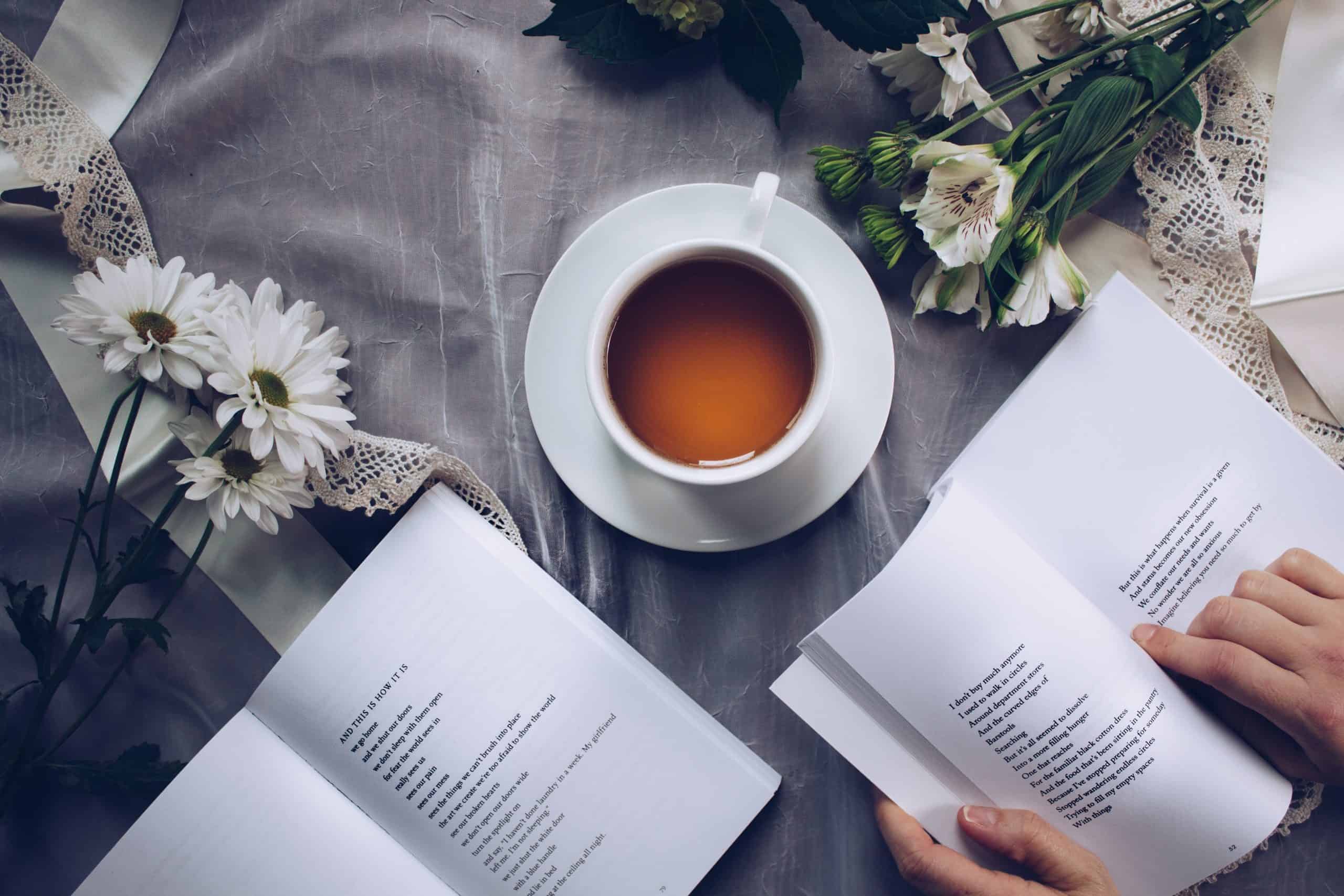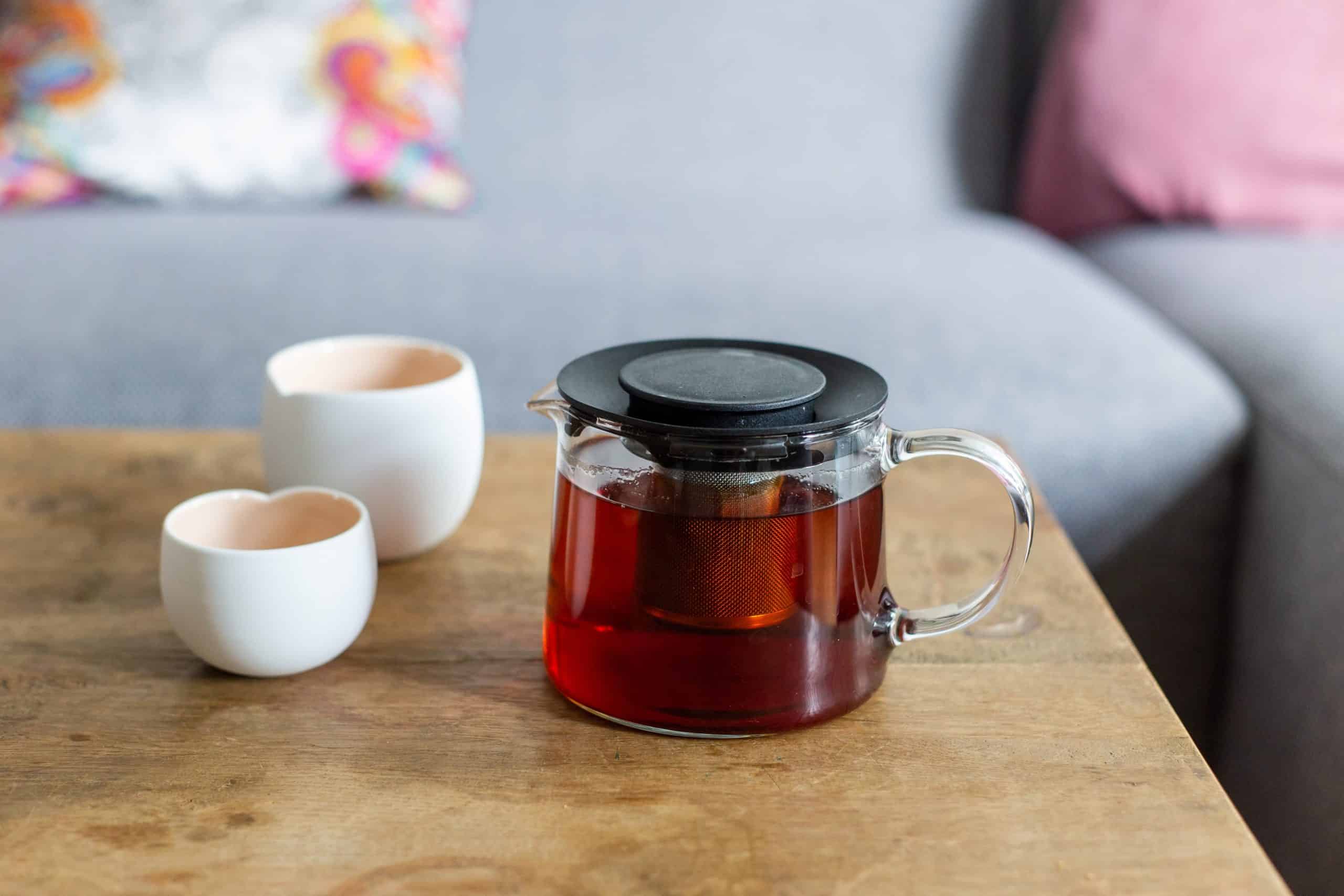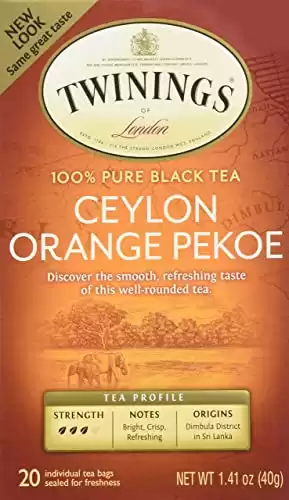My first memory of tea was sitting across from my grandmother. I’m very sure it was Lipton’s Orange Pekoe tea poured into my china teacup and matching saucer. Oh, and I can’t forget about those10 sugar cubes that made it way into my tea. I was 5, then.
The taste of the tea, the look of my grandmother sitting across from me. While that was a long long time ago the memory is as real as if I was sitting there today.

What is orange pekoe
First I can tell you what it is not. Orange Pekoe is neither made from an orange or orange-flavored. Now that we have that out. Of the way. Orange Pekoe is a class of
Now that we know what Pekoe is. But how did it get its name? A more interesting story. Pekoe refers to the classification of tea. The orange comes from the Dutch royal family that was of the hOuse of Orange (ahhhh). It was the 1600’s and that company brought teas to Europe. This
We mentioned classifications and here it begins.
- Orange Pekoe – OP
- Flowery Orange Pekoe – FOP (the end bud and first leaf of each shoot)
- Golden flowery orange pekoe w/ golden tips – GFOP (FOP made with golden tips)
- Tippy golden flowery orange pekoe – TGFOP (FOP with a large proportion of golden tips)
And this list can go on and on and on.
The color of the Orange Pekoe tea has a lovely light and sometimes medium-bodied liquor. The flavor is not of citrus or fruit. Orange Pekoe is more mellow and earthy. The taste of the fermented leaves gives the tea a slightly Smoky, earthy, malty yet mellow flavor.
Robust tea with big flavors finishes with a soft citrus. Slightly sweet, but not too much.
Does Orange Pekoe mean tea fanning (dust)?
Generally, people think of an Orange Pekoe tea they think of the boxed tea at the local grocery store. While that is true. The grade of Pekoe is one of the highest grades of teas. It is one of the finest.
The Lipton tea I drank with my grandmother was tea dust in a bag or what we call fannings. This is a lower quality tea saved specifically for teabags. But, it does not encompass the entire Orange Pekoe tea character. The tea from tea bags is called broken and hence it is BOP. These are a lesser class of teas.
Orange Pekoe is much more than a fanning. It’s the most delicate tea created as just the very tip or the earliest growth of the tea plant. The bud and two leaves are picked and the process of the finest of teas begins.
While being such a delicate tea it is also one of the most consumed teas today.
High-fired, smoky, and malty, this full-bodied, black tea has a distinctive smokiness to it that lingers on. This mildly astringent amber cup brightens up with a splash of milk and spruces up with a spoon of sugar.
Benefits of Orange Pekoe Tea
Pekoe tea, like all teas, is full of healthy benefits. Pekoe is a
Some other benefits include but are not limited to:
Antioxidants – This helps reduce free radicals and promote cellular healing and health. This helps strengthen the body and fight off disease.
Heart-Related Disease – May help reduce the risk of heart disease, high blood pressure, high cholesterol, high triglycerides, and obesity.
Cardio-Vascular System – Orange Pekoe helps in healing the abnormalities within the inner lining of blood vessels. Cleaning and curing the vessels mean there is less of a chance to suffer from heart attacks.
Cancer –
Reducing LDL – LDL (low-density lipoprotein) is considered the “bad” lipoprotein as it transports cholesterol to the cells.
Microbiome – Polyphenols in Orange pekoe help maintain a healthy gut and increase the good bacteria and eliminate the bad.
High Blood Pressure – A small study showed a decrease in High Blood Pressure. A decrease in both systolic and diastolic blood pressure.
Diabetes – helps in treating type 2 diabetes.
Strokes – studies showing a reduction in the risk of strokes.
Blood circulation –
Inflammation – Inflammation can harm the body and cause disease.
Works with Antibiotics – Tea leaves are antimicrobial. A study showed how the effects of black and green tea work with antibiotics. A study in the Indian Journal of Medicine showed that
Ingredients: Single tea bag in a sealed packet. Ingredients: black tea
Specialty: Kosher
Side Effects and Concerns
The amount of Orange Pekoe you drink is important. It seems most side effects and issues stem from large amounts. All things including Orange Pekoe tea in moderation!
Caffeine – Drinking large amounts of
- Headaches
- Nervousness
- Anxiety
- Sleep problems
- Vomiting
- Diarrhea
- Irregular heartbeat
- Tremor
- Dizziness
- Ringing in the ears
Fluoride – large amounts of Pekoe
Weight – loss or gain in excess can be affected by consuming too much tea.
All things in moderation. How much Orange Pekoe is too much? Consumption of

Conclusion
When you travel the grocery store aisles look at the big box teas. Now know there are different grades and classes of the Orange Pekoe that you see. It’s not the poor man’s tea, quite the opposite. Royalty named and created. An excellent drink and one of the highest grades using just the bud and first two leaves.
I may have not known, as I sat across from my grandmother, that I was drinking such a special tea. That time was my introduction to tea. Several years later I still love a cup of orange Pekoe and all the memories it brings back.




